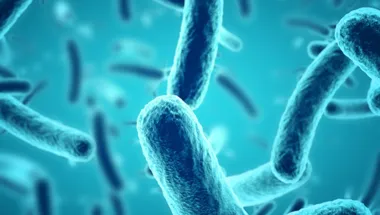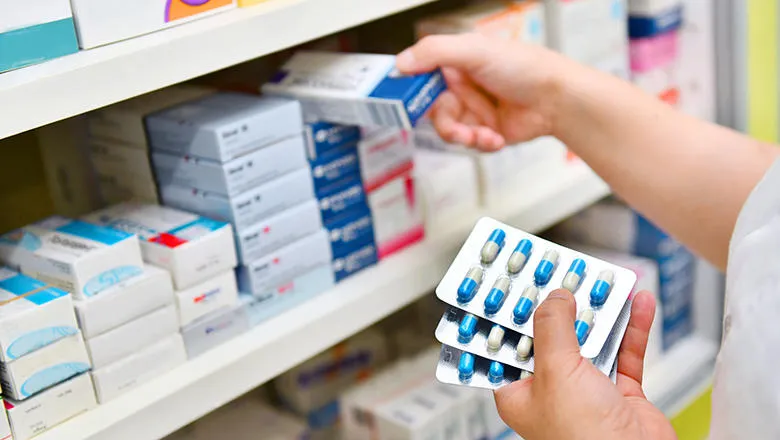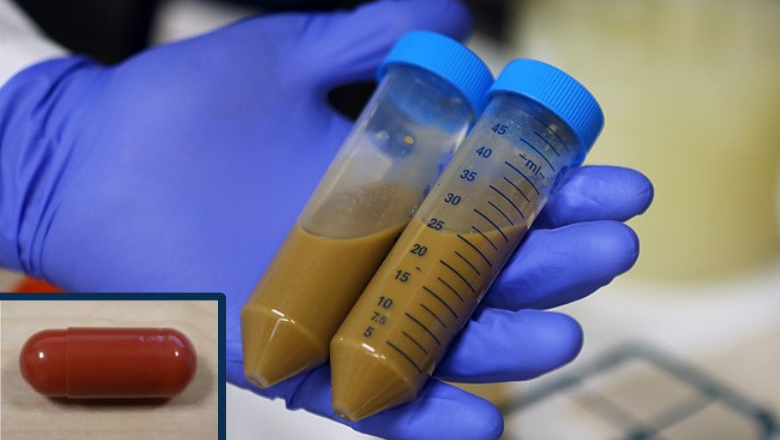
Dr Lindsey Edwards
Senior Lecturer in Microbiology
Research interests
- Host-Microbiome Interactions
Biography
Dr Edwards completed her PhD at University College London (UCL), investigating the role of the gut-microbiota in the aetiology of Crohn’s disease. She has since completed postdocs in mucosal immunology at the Institute of Child Health and at the Rayne Institute at UCL before joining King’s College London in 2012. Her research interests are in mucosal barrier immunology, host-microbe interactions and subsequent priming of adaptive immune responses as well as investigating how these interactions go awry as a pathogenic cofactor in intestinal & liver diseases.
Research

Centre for Host-Microbiome Interactions
Millions of microorganisms live in and on our bodies forming microbiomes on different surfaces. Researchers in the Centre for Host Microbiome Interactions study our relationship with these bacteria and fungi in health or in oral and systemic diseases such as periodontitis, candidiasis, oral cancer and Alzheimer’s disease.

The Multiscale Biofilm Research Hub (MBRH)
The Multiscale Biofilm Research Hub (MBRH) has been established to promote interdisciplinary interactions and focus microbial biofilm related research at King’s.

Biofilms at mucosal surfaces
The study of dental caries, periodontitis, vaginal dysbiosis, chronic inflammatory diseases & infections within the oral cavity, intestinal tract & lungs
Project status: Ongoing

Antimicrobial resistance and biofilm therapeutics
Work involves understanding how biofilms contribute to antimicrobial resistance and the creation of new anti-biofilm therapeutics.
Project status: Ongoing

Microbes in Health & Disease
The Microbes in Health & Diseases Research Interest Group aims to foster collaboration across departments and faculties at KCL to explore the multifaceted role microbes play in health and disease.
News
Faculty of Dentistry, Oral & Craniofacial Sciences 2025 Staff Awards
Colleagues from FoDOCS came together at the start of April to celebrate the remarkable, diverse and hugely impactful contributions that individuals and teams...

King's academics reflect on the implications of Trump's victory
As the world woke up to Trump’s victory in the US elections, academics at King’s College London shared their reflections on what the result could mean across...

AI tackles huge problem of antimicrobial resistance in intensive care
Artificial intelligence (AI) can provide same-day assessments of antimicrobial resistance for patients in intensive care – critical to preventing...

New approach to drug design promises hope in fight against antimicrobial resistance
Researchers from the Department of Chemistry develop breakthrough in the war against antimicrobial resistance.

'Poo transplant' trial provides hope for liver disease patients
The UK is to launch a clinical trial of a ‘poo transplant’ that researchers believe could treat advanced liver disease and fight antimicrobial resistance.

King's hosts antimicrobial resistance awareness event at Westminster
On Tuesday 22nd March, King’s hosted the event Tackling Antimicrobial Resistance in Liver Disease in the Churchill Rooms at the Houses of Parliament.
Features
Antimicrobial Resistance: Why the next government needs to prepare for ‘the coming plague'
Could antimicrobial resistance (AMR) be the incoming government’s next major challenge? AMR is a growing global threat, responsible for one in eight global...

Research

Centre for Host-Microbiome Interactions
Millions of microorganisms live in and on our bodies forming microbiomes on different surfaces. Researchers in the Centre for Host Microbiome Interactions study our relationship with these bacteria and fungi in health or in oral and systemic diseases such as periodontitis, candidiasis, oral cancer and Alzheimer’s disease.

The Multiscale Biofilm Research Hub (MBRH)
The Multiscale Biofilm Research Hub (MBRH) has been established to promote interdisciplinary interactions and focus microbial biofilm related research at King’s.

Biofilms at mucosal surfaces
The study of dental caries, periodontitis, vaginal dysbiosis, chronic inflammatory diseases & infections within the oral cavity, intestinal tract & lungs
Project status: Ongoing

Antimicrobial resistance and biofilm therapeutics
Work involves understanding how biofilms contribute to antimicrobial resistance and the creation of new anti-biofilm therapeutics.
Project status: Ongoing

Microbes in Health & Disease
The Microbes in Health & Diseases Research Interest Group aims to foster collaboration across departments and faculties at KCL to explore the multifaceted role microbes play in health and disease.
News
Faculty of Dentistry, Oral & Craniofacial Sciences 2025 Staff Awards
Colleagues from FoDOCS came together at the start of April to celebrate the remarkable, diverse and hugely impactful contributions that individuals and teams...

King's academics reflect on the implications of Trump's victory
As the world woke up to Trump’s victory in the US elections, academics at King’s College London shared their reflections on what the result could mean across...

AI tackles huge problem of antimicrobial resistance in intensive care
Artificial intelligence (AI) can provide same-day assessments of antimicrobial resistance for patients in intensive care – critical to preventing...

New approach to drug design promises hope in fight against antimicrobial resistance
Researchers from the Department of Chemistry develop breakthrough in the war against antimicrobial resistance.

'Poo transplant' trial provides hope for liver disease patients
The UK is to launch a clinical trial of a ‘poo transplant’ that researchers believe could treat advanced liver disease and fight antimicrobial resistance.

King's hosts antimicrobial resistance awareness event at Westminster
On Tuesday 22nd March, King’s hosted the event Tackling Antimicrobial Resistance in Liver Disease in the Churchill Rooms at the Houses of Parliament.
Features
Antimicrobial Resistance: Why the next government needs to prepare for ‘the coming plague'
Could antimicrobial resistance (AMR) be the incoming government’s next major challenge? AMR is a growing global threat, responsible for one in eight global...

